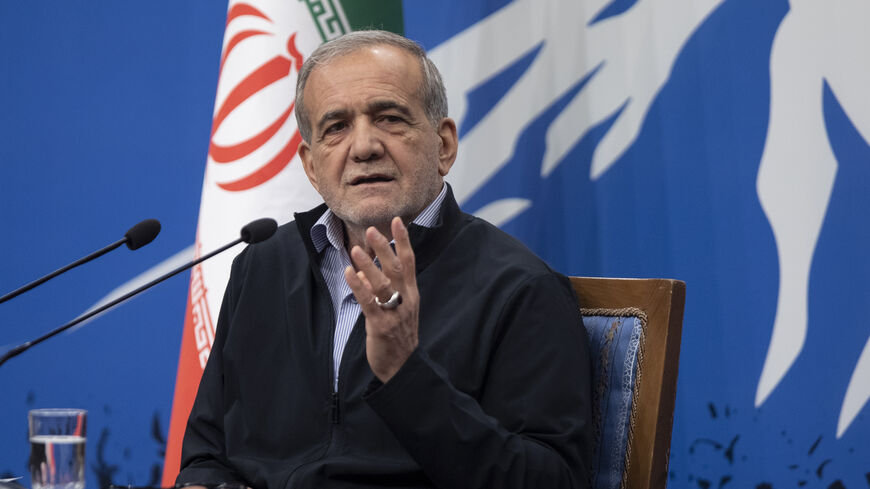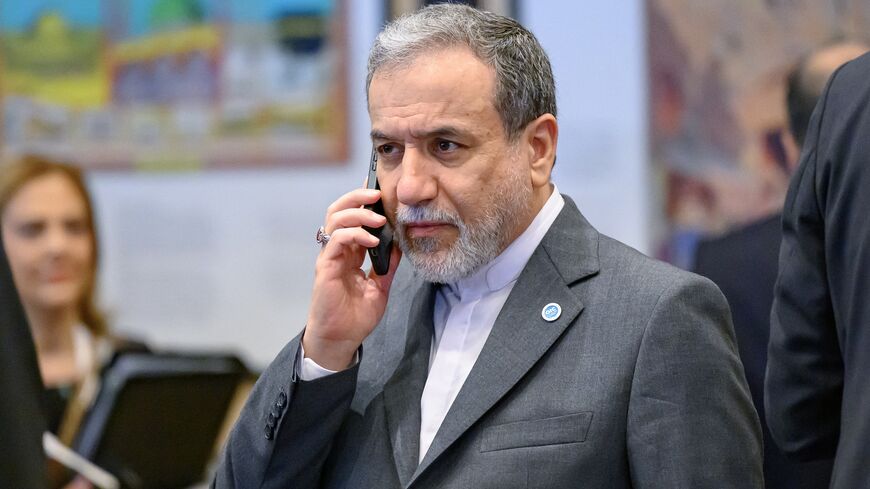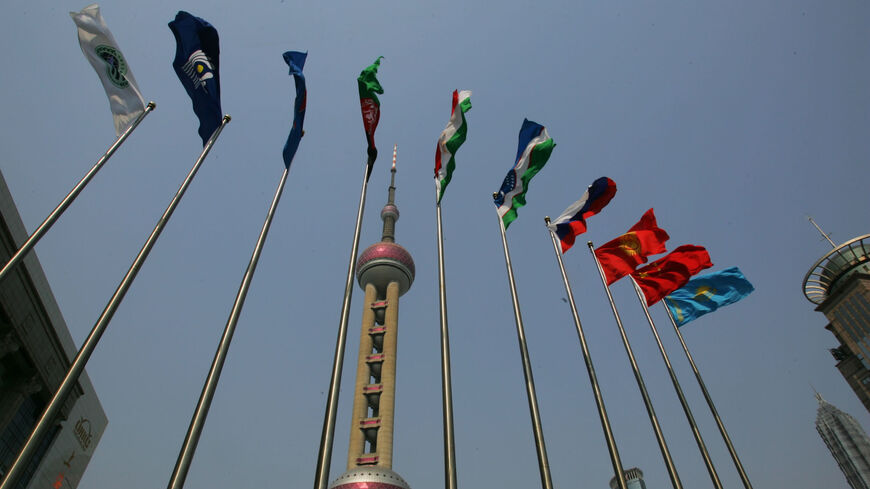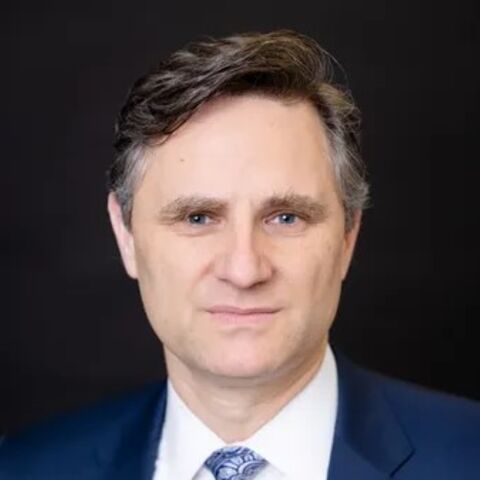Iran’s Araghchi to meet China, Russia FMs at Shanghai Cooperation meeting
Iran is seeking to deepen economic ties with the China-led bloc amid US sanctions and the aftermath of last month's war with Israel.
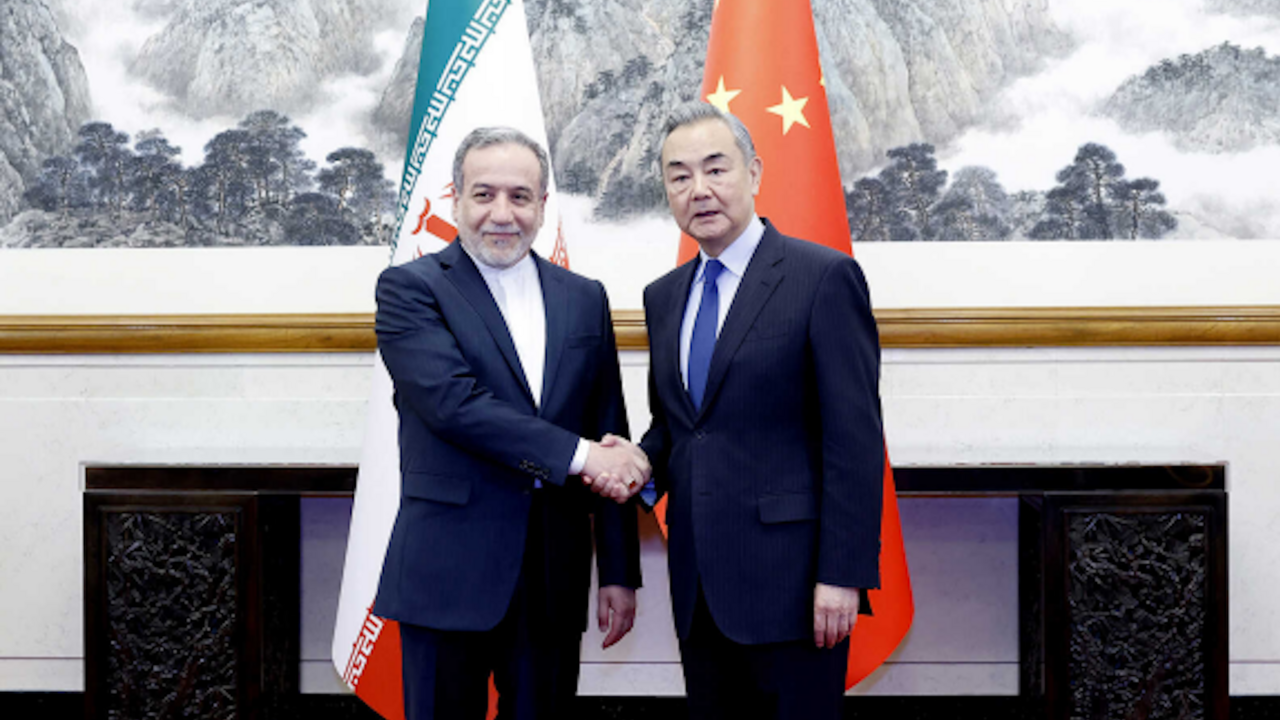
Iranian Foreign Minister Abbas Araghchi is set to meet his Russian and Chinese counterparts at the Shanghai Cooperation Organization meeting on Tuesday, as Iran seeks to bolster ties with both countries amid the aftermath of last month’s war and persistent US sanctions.
What happened: The SCO Foreign Ministers Council will convene in the northeast Chinese city of Tianjin on Tuesday.
“Foreign ministers of SCO member states will exchange views on SCO cooperation in various areas and major international and regional issues, and resolutions and documents will be signed at the meeting,” Chinese Foreign Minister spokesperson Lin Jian told reporters on Monday.
Araghchi departed Tehran on Monday. He will meet with Chinese Foreign Minister Wang Yi as well as other foreign ministers at the meeting, the official Islamic Republic News Agency reported.
Iranian Foreign Ministry spokesperson Esmaeil Baghaei told the Russian news agency RIA Novosti on Monday that Araghchi will meet his Russian counterpart, Sergey Lavrov, in Tianjin. They will discuss bilateral relations, regional developments and the nuclear issue, Baghaei told the outlet.
Background: The SCO is a Eurasian political and economic organization that seeks to foster greater cooperation among its members. The SCO was founded in 2001 by China, Russia, Kazakhstan, Kyrgyzstan, Tajikistan and Uzbekistan, later adding India, Pakistan, Iran and Belarus as member states. Iran joined in 2023.
Turkey, Egypt, Saudi Arabia, Qatar, the United Arab Emirates, Kuwait, Bahrain and Azerbaijan are among the 14 dialogue partners of the organization. Diplomats from the dialogue partners met in Beijing in April.
The foreign ministers of India, Pakistan and Belarus are among the other diplomats attending the meeting, according to various reports. The Chinese state media agency Xinhua reported that the heads of the SCO’s two permanent bodies will likewise attend.
The SCO’s permanent bodies are the Secretariat in Beijing, headed by former Kazakh Defense Minister Nurlan Yermekbayev, and the Tashkent-based Regional Anti-Terrorist Structure, led by Kyrgyz military officer Ularbek Sharsheev.
Why it matters: Ryan Bohl, a senior Middle East and North Africa analyst at RANE, said that Araghchi’s goals in Tianjin will be to alleviate the effects of sanctions and boost Iran’s oil exports.
“The overall Iranian position is to develop deeper and more tangible soft power ties for sanctions relief and energy,” Bohl told Al-Monitor. “They’ll be looking for ways that they can facilitate Iranian oil exports to China in a reliable way that can't be upended.”
The negotiations between the US and Iran over the latter’s nuclear program were suspended in June following the Israeli attack on Iran. The US eventually conducted strikes of its own against Iranian nuclear sites before brokering a ceasefire between Israel and Iran the same month.
Bohl said that Iran’s biggest tangible benefit from joining the SCO is “China's willingness to be that mediator between Saudi [Arabia] and Iran,” referencing the Chinese-brokered deal that resumed ties between the two countries in 2023. Iran is hoping China will now play a bigger role in defending Iran in the Middle East, he said.
“They're hoping China could become a greater diplomatic partner to help shield them from things like the 12-day war … Iran is waiting on China to develop the mentality that they want to be more interventionist in the region on Iran's behalf,” said Bohl.
China is Iran’s largest oil customer, receiving around 90% of the Islamic Republic’s shipments. Iranian oil exports to China fell in May amid strengthening sanctions by the Trump administration, though Reuters reported the exports hit a record high of 1.8 million barrels per day during the first three weeks of June.
Know more: Iran is part of the planned International North-South Corridor, a ship, rail and road route that aims to connect India to Russia by way of Iran. The corridor was a key part of the discussions during a visit by Russian officials to Tehran in December, Al-Monitor's correspondent in Tehran reported that month.
Iran’s trade with SCO member states has increased in recent years, rising 5.5% to $37.1 billion from March 2023 to January 2024, according to the Islamic Republic News Agency.
Lavrov and Araghchi met last week on the sidelines of the BRICS summit in Rio de Janeiro and discussed the nuclear issue. Last month, the Kremlin said it would be willing to store Iranian uranium as part of a deal.
BRICS expressed "grave concern" over the attacks on Iran in June, adding in a statement that the bloc supports a Middle East free of nuclear weapons.
"We also reaffirm the necessity of establishing a zone free of nuclear weapons and other weapons of mass destruction in the Middle East, in line with relevant international resolutions," read the statement.

